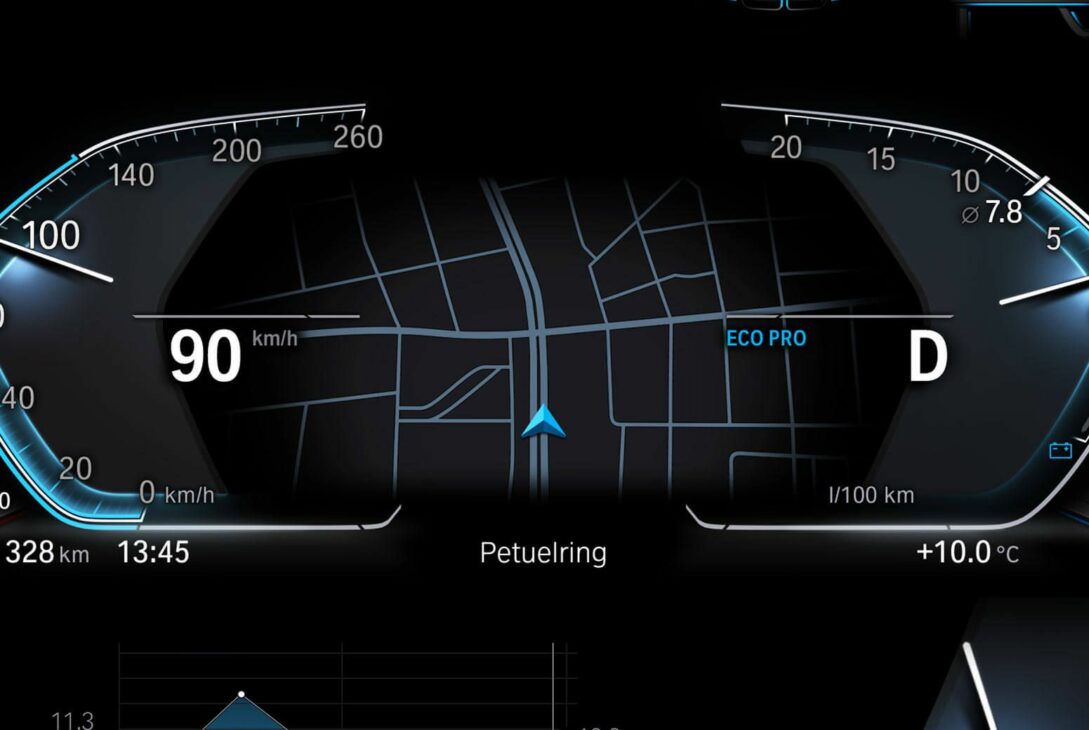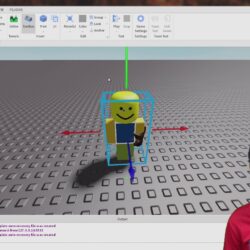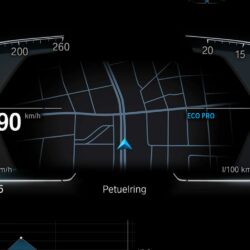We have already had the opportunity to tell the rise of connected cars . Vehicles that are increasingly digital and innovative, whose “electronic” part performs various functions : it accentuates safety, improves the infotainment and makes the driving experience more immersive. The Digital Instrument Cluster is part of this type of vehicle concept : the digital dashboard has become a much sought after component in cars, as the demand for advanced digital features is increasing.
In this article we explain what the Digital Instrument Cluster is exactly and what are some of the best examples.
What is the Digital Instrument Cluster
By Digital Instrument Cluster we mean the digital dashboard: it includes the collection of advanced digital instruments, the infotainment system and the displays on which information is displayed . The Digital Instrument Cluster is inserted in cars to improve the driving experience: for example, it can provide better access to maps and multimedia content through wireless connectivity, HMI applications and infotainment devices.
The Digital Instrument Cluster is the evolution of the classic “analog” dashboard , in which basic data such as the number of km traveled, the amount of fuel available and the car’s warning lights could be displayed. Today the digital dashboard is customizable and offers much more information.
Digital Instrument Cluster or digital cockpit?
Several online resources speak of Digital Instrument Clusters and many of digital cockpits: in reality Digital Instrument Cluster and digital cockpit are synonymous. Both refer to a digital screen instead of the traditional instrument cluster. The term Digital Instrument Cluster, specifically, was invented by Audi to promote its digital tools on board cars.
Digital instrument cluster – overview
The instrument panel information display shows information on some of the car’s functions as well as messages.
Information display
Instruments and indicators
Various themes can be selected for the digital combined instrument panel. The themes ” Elegance”, “ Eco” and Performance” are available.
The theme can only be selected with the engine running.
To select the theme, press the OK button on the left stalk of the steering wheel and select the Themes option by turning the wheel of the lever. Press the OK button . Turn the wheel to select the theme and press OK to confirm the selection.
” Elegance ” theme
Instruments and indicators, ” Elegance ” theme.
Fuel gauge. When the indicator drops to a white mark, the yellow warning light for low fuel level in the tank comes on.
Engine coolant temperature gauge
Speedometer
Tachometer. Indicates the engine speed in thousands of revolutions / minute.
” Eco ” theme
Instruments and indicators, ” Eco ” theme.
Fuel gauge. When the indicator drops to a white mark, the yellow warning light for low fuel level in the tank comes on.
Speedometer
Tachometer. Indicates the engine speed in thousands of revolutions / minute.
Gear shift indicator/ Gear position indicator.
” Performance ” Theme
Instruments and indicators, ” Performance ” theme.
Fuel gauge. When the indicator drops to a white mark, the yellow warning light for low fuel level in the tank comes on.
Engine coolant temperature gauge
Speedometer
Tachometer. Indicates the engine speed in thousands of revolutions / minute.
Power guide .
Gear shift indicator/ Gear position indicator.
Control and alarm lights
Warning and warning lights, digital instrumentation.
Control lights
Control and alarm lights
Warning lights
Diagnostic test
All indicator and warning symbols, except the symbols in the center of the information display, illuminate when the key is turned to position II or when the engine is started. All symbols should go out when the engine is started, except the parking brake symbol which goes out when the parking brake is released.
If the engine fails to start or the diagnostic test is carried out with the key in position II , all symbols extinguish within a few seconds except those indicating a fault in the exhaust gas cleaning system and low oil pressure .










